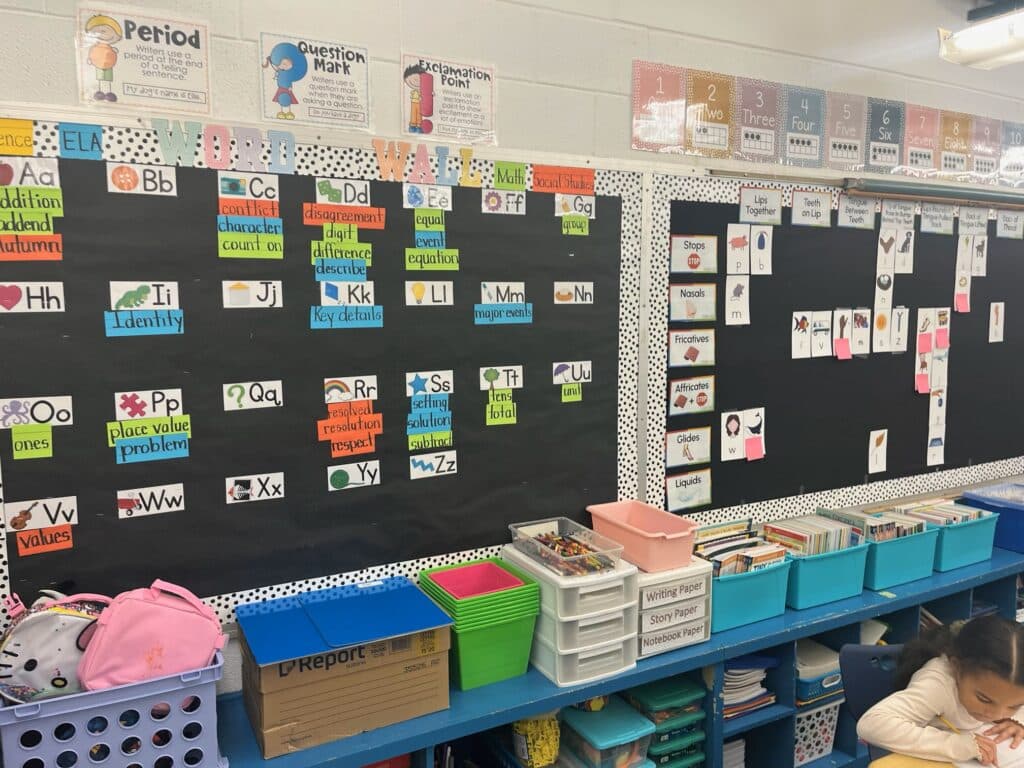Lindsey Hampton
During her 20+ years in education, Lindsey has been an elementary and secondary classroom teacher, an instructional coach, and a specialist in teacher induction. She has collaborated with teachers and administrators nationwide to develop learning partnerships that focus on evaluating and implementing High Yield Instructional Strategies. Her instructional coach and specialist background have led her to the philosophy that improvement must be viewed as a continuum, a means to refine and adapt the improvement of instructional practices continually. She has presented this theme and many others on teaching and learning at numerous conferences in FL, KY, TN, NC, and PA. Her contributions to Learning-Focused include developing new resources and workshops, providing leadership and instructional training and coaching.One of my favorite things to discuss with elementary teachers is their classroom environment. Their faces light up with enthusiasm as we chat about furniture arrangements, bulletin boards, and inspirational posters. You can almost see the mental shopping lists forming as they picture their next trip to the dollar store and craft aisles. During these…
Read More“Students can’t even write a basic sentence!” This frustration resonates with teachers at all grade levels, as too many students struggle with sentence structure—writing in fragments, misusing punctuation, or failing to express their ideas clearly. In this comprehensive guide to sentence structure, construction, comprehension, and overall literacy improvement, you’ll learn: Why Early Sentence Instruction Matters…
Read MoreWhy do myths in education and teaching persist despite decades of research demonstrating what truly benefits learners? A recent visit to a middle school brought me face-to-face with a challenging realization. As I stepped into a veteran teacher’s classroom, I took a moment to observe how she had arranged her environment. Her walls were vibrant,…
Read MoreHave you ever posed a question to your class, only to be met with blank stares from some students while a few eager hands shoot up immediately? You’ve likely noticed the same students consistently volunteering while others remain quiet, avoiding eye contact. As educators, we’ve all faced the challenge of trying to engage everyone: the…
Read MoreIn today’s school environment, fostering deep and engaging classroom discussions is essential for promoting critical thinking and student engagement. Traditional question-and-answer formats often limit the depth and engagement of these conversations. Teachers can use specific response strategies to encourage students to elaborate, justify their thinking, and engage in collaborative problem-solving to encourage more meaningful and…
Read MoreEvery new school year, teachers grapple with a crucial question: how to design their classroom for the optimal learning environment. While factors like assigned space and resources can vary, the start of the year offers a unique chance to design a room that fosters focus, engagement, and student success. This goes beyond aesthetics; it’s about…
Read MoreIn today’s classrooms, educators face a constant challenge: differentiate instruction to meet the needs of a diverse group of students. Small group instruction has emerged as a popular solution, promising a way to provide more individualized attention. However, many uncertainties remain: The key to unlocking the true potential of small groups lies in a crucial…
Read MoreIn an ideal world, review isn’t just a pre-exam scramble! Instead, it is a thread that must be strategically woven throughout the school year, providing students with dedicated time for retrieval and practice, whether before end-of-year assessments or after a series of connected lessons. But how do we ensure our review strategies and classroom time…
Read MoreAs the school year winds down and end-of-course exams and final assessments loom, it’s natural to want to jump into a full-blown end-of-year teaching review of everything students have learned. However, the key to effective EOY reviews isn’t simply re-teaching everything but targeting the appropriate level of instruction students need at the end of the…
Read MoreImagine your classroom transformed. Students are actively engaged, thinking critically, and collaborating to construct a deeper understanding of diverse topics. This captivating learning environment is within reach by harnessing the power of summarizing, a transformable strategy applicable across all content areas. The Power of Student Summarizing Research consistently highlights the multifaceted benefits of summarizing: What…
Read More









